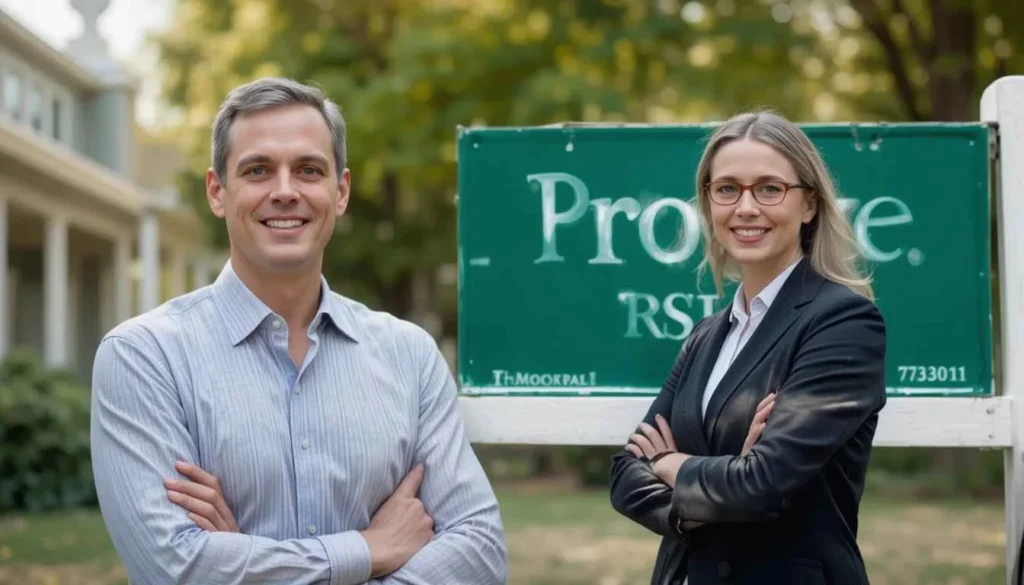
Probate real estate agent The real estate industry has many niches, but one of the most profitable and growing fields today is probate real estate. With generational wealth transfer increasing, more homes are entering the probate process every year. This has raised a common question among professionals: how to become probate real estate agent in 2025? If you want to specialize in this niche, the journey requires the right education, licensing, networking, and compassion. In this guide, we’ll cover everything you need to know step by step.
What Is a Probate Real Estate Agent?
A probate real estate agent is a licensed professional who helps sell properties that are part of an estate when a homeowner passes away. Unlike regular sales, probate involves court approval and specific legal steps. Families, heirs, or executors often need to sell these homes quickly to pay off debts or divide assets. Understanding how to become probate real estate agent starts with knowing the difference between standard real estate deals and probate transactions.
Why Specialize in Probate Real Estate?
There are several reasons why probate real estate is a smart career choice. First, probate homes must be sold regardless of market conditions, which means steady opportunities. Second, heirs are often motivated to sell fast, which helps agents close deals quicker. Third, fewer agents specialize in this niche, so competition is lower. Learning how to become probate real estate agent not only boosts your income but also allows you to provide valuable services to families during difficult times.
Step 1: Get Your Real Estate License
The very first step in how to become probate real estate agent is earning your real estate license. Every state in the U.S. requires coursework, an exam, and official licensing. Once you’re licensed, you are legally able to represent clients in real estate transactions. This foundation is essential before you can focus on probate specialization.
Step 2: Learn Probate Laws and Legal Procedures
Each state has its own probate rules, and agents must understand them clearly. Courts supervise the process, and missing documents or mistakes can delay sales. To master how to become probate real estate agent, you need to study local laws, attend probate training, and even consult with attorneys. The more familiar you are with probate rules, the smoother your transactions will be.
Step 3: Build Relationships with Probate Professionals
A big part of success is networking. Probate attorneys, estate planners, and financial advisors regularly work with executors who need to sell homes. If you want to master how to become probate real estate agent, you must build relationships with these professionals. They can refer clients directly to you, providing a steady stream of business
Step 4: Develop Communication and Compassion Skills
Probate clients are often grieving, stressed, or overwhelmed. That’s why empathy is crucial. Agents who know how to become probate real estate agent understand that compassion and patience go hand-in-hand with professionalism. Clear communication, respect, and sensitivity will help you gain client trust and long-term referrals.
Step 5: Generate Probate Leads
No career in real estate works without leads. For how to become probate real estate agent, learning lead generation is vital. You can access probate leads through public records at county courts, subscribe to probate lead services, or network with attorneys. In 2025, digital marketing is also powerful—using SEO blogs, targeted ads, and social media outreach can help you connect with families in need.
Step 6: Create a Marketing Strategy
Marketing yourself as a probate expert sets you apart. Direct mail campaigns are effective, but having a strong online presence is equally important. If you’re serious about how to become probate real estate agent, invest in a professional website, blog about probate real estate, and use SEO to rank for local keywords like “probate real estate agent near me.” Social media platforms such as LinkedIn and Facebook are also great for networking.
Step 7: Get Experience with Probate Transactions
Hands-on experience is one of the most important parts of how to become probate real estate agent. Once you close your first few probate deals, you’ll understand the challenges, such as handling multiple heirs or coordinating with attorneys. Every case is different, and practical knowledge will make you an expert.
Step 8: Stay Updated and Keep Learning
Laws change, and the real estate market evolves. To remain competitive, probate agents must stay updated through continuous education, attending industry seminars, and learning new technologies like digital contracts and AI-powered lead tools. The best agents know that how to become probate real estate agent is not just about starting—it’s about growing with time
The Future of Probate Real Estate in 2025
With the aging population, the number of probate properties is expected to increase. This means even more opportunities for agents who specialize. Those who already understand how to become probate real estate agent will be at an advantage in handling this rising demand. By combining modern marketing with compassion, agents can build a strong and lasting career in this niche.
Conclusion
If you’ve ever wondered how to become probate real estate agent, the answer lies in following a structured path—get licensed, learn probate laws, build professional networks, and master lead generation. Beyond the business benefits, you’ll also play an important role in helping families during challenging times. In 2025 and beyond, probate real estate will continue to grow, making this one of the best specializations for forward-thinking real estate professionals.

